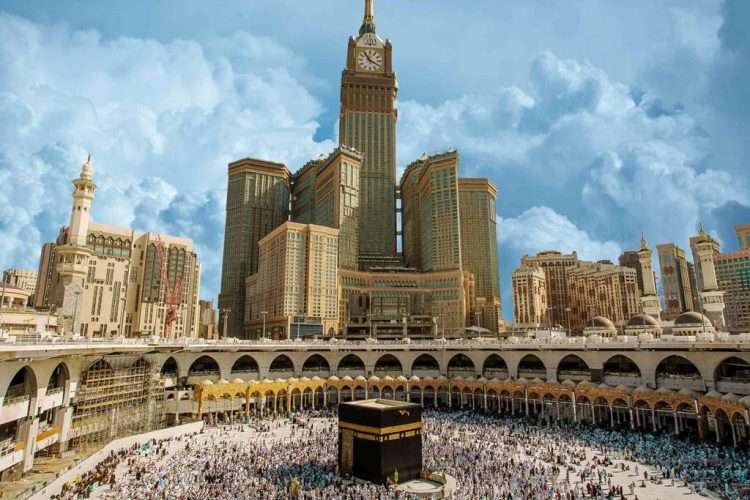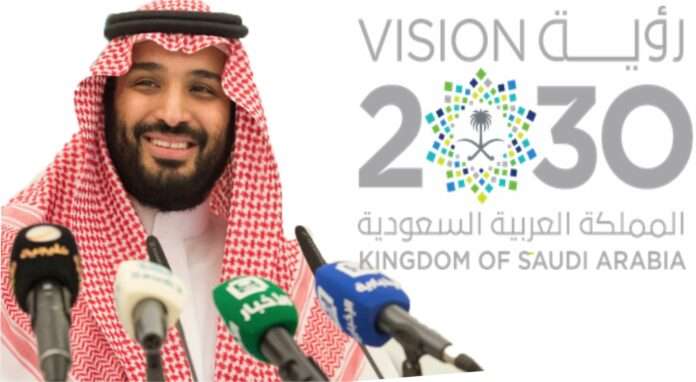A national economy which depends on income from just one source will always be vulnerable, especially when that income comes from non-renewable resources. The prosperity of an economy usually relies on the successful implementation of economic diversification. In 2016, Saudi Crown Prince Muhammad bin Salman unveiled a new five-year economic strategy, “Vision 2030”, to transform the kingdom into a global investment powerhouse with a diversified economy. This vision has identified several pillars for implementing a diversified and sustainable economy, founded on the creation of a knowledge-based economy, encouraging entrepreneurship and enhancing private sector participation, achieving gender equality in the domestic job market, and investment in non-oil sectors such as tourism, etc. Revamping the economy is not just about diversity but also about making knowledgeable job growth decisions, the goal is an economy that relies more on the private sector than the government. Thus crucial to the success of this plan is getting Saudis to work in the private sector and creating jobs that match their skills. To achieve economic diversification the government will have to increase foreign investment, increase the amount of small and medium businesses and create jobs. One surprising aspect that would strike people going to Saudi Arabia today, unimaginable a few years ago, is the integration of Saudi women into the workforce, something quite remarkable.
They are now pretty much everywhere doing jobs, including in the military and even driving cars. MBS’ adopting of a more assertive foreign policy than other Saudi leaders has gone down well with many Saudis who support the prince and his plans and believe he has revitalized their country, unleashing its potential growth and change and most importantly, given them social freedom long been denied. For the benefit of readers my article titled ‘Overhauling the Kingdom’ is reproduced below:
” Visiting Riyadh after nearly 5 years, the overall environment in the new airport Terminal feels different. In absolute departure from previous rather brusque and forbidding immigration counters, the presence of women also manning them gave a softer image. With visas now available on arrival, the clearly enthusiastic women officials strive earnestly to be business-like and efficient, they are still on a learning curve. The new rules are certainly great for business or a casual visit but for those also aspiring to do Umrah, one has to be careful when completing the answers. When we got in Madinah we found the APP allowing us into “Roza-e-Rasool” at the Masjid-e-Nabvi had a glitch. My wife and sister-in-law patiently spent 5 hours before being allowed into the “Roza-e-Rasool” and that also because of two Saudi female officials in the “Special Handling” office at Gate37 of the Masjid-e-Nabvi. Seeing their determination Ms Noora helped them far beyond the call of her duty, her assistant Ms Aisha was simply outstanding. Accompanying them she overcome all the bureaucratic obstacles.
Right opposite the airport terminal is a futuristic train station terminal under construction. A network of rail lines will connect major cities across the desert Kingdom. Entire areas in Riyadh have been demolished or are being demolished, broad avenues have come up with huge new buildings everywhere, the planning and construction thereof is to be seen to be believed. During his long tenure as Governor Riyadh, the present ruler King Salman, had modernized the city. His son Crown Prince Muhammad Bin Salman’s (MBS) is doing it all over again, with emphasis on incorporating the future needs and aspirations of the Kingdom. Riyadh has changed dramatically, we were extremely fortunate to get to stay with a good friend, more like a younger brother he and his wife went all out to make us feel at home.
As usual Madinah is an oasis of peace, the security staff are less visible and are mostly polite. The 450 kms Haramain High Speed Railway (HHR) from Madinah to Mekkah was excellent, however they should follow the airline baggage rules. The baggage rules for size and number are impractical and need to be revisited. Even as Business Class passengers we had to send our baggage (because the size exceeded that allowed by HHR)through an extra vehicle to Mekkah.
Passing through Jeddah on the HHR on our way to Mekkah one could see wide swaths of buildings had disappeared in this 5 million population city. While the bulldozers have flattened entire neighbourhoods, the old city designated a UNESCO Heritage site remains untouched. The new construction is a living testament to MBS’ determination to transfer the old cities into new metropolis for the future with all the futuristic communication needs integral to the development. The slums of Jeddah were infamous for criminal gangs, mostly mafias with huge drugs and prostitution rings. With lack of proper planning and drainage infrastructure, Jeddah has been prone to flooding. Detailed projects being implemented expeditiously will prevent flood disaster in the future.

While the development in and around Mekkah also quite visible, even during normal days the city traffic is horrendous. With both the officials and citizens of Mekkah abrasive in contrast to those in Riyadh and Madinah is the “body language” difference is palpable. Security guards in and around the Haram Sharif were truly obnoxious, having no respect for the old and the infirm, they are rough for no reason in particular with anyone who came within range of their hands, a stark contrast to the fresh and welcome environment of friendliness visible in the other cities of the Kingdom.
The Fairmont Hotel at the Clock Tower was an exception to the “attitude” in Mekkah. Starting with Omar Al Sharif, the Manager on duty when we arrived, the entire staff was not only polite, he was super-efficient in solving our problems. Omer Ali Sharif made quite a difference. The wonderful thing in the proximity to the Kaaba, was whether Moroccan, Pakistani, Indian, Sri Lankan, etc the entire staff of many nationalities was similarly helpful. One would particularly like to mention that a Burmese Muslim in particular, a waiter at the hotel restaurant named Hafiz, who alongwith his colleagues literally fell over ensuring we were looked after – even making ‘Karak Chai’ for us. Any hotel and/or security organisation depends upon leadership like that given by managers like Omar Al Sharif, it was simply outstanding.
The Kingdom of Heaven is drastically changing because of the courage of MBS. A cross-section of businessmen and diplomats in Riyadh had one constant refrain, the brave Prince has taken Saudi Arabia by the scruff of the neck, setting aside custom and tradition, he is making things happen for the better. Every person I talked to in Riyadh and Madinah, Makkah and Jeddah commented upon how the Kingdom’s Ministers set the tone and the precedence by making it a point for being punctual to the dot, mostly even five minutes earlier. And anyone wanting a meeting had to have a precise agenda and was given limited time, with no casual time for tea or gossip. Anyone not performing according to a calculated measure would find himself sacked if they did not come upto standards.
MBS’ key project is the futuristic city of Neom in Tabuk Province north of the Red Sea in northwestern Saudi Arabia; incorporates smart city technologies and function as a tourist destination. The key objectives in making Neom is to (1) position the Kingdom to play a leading role in global development by growing and diversifying the Saudi economy (2) A home and workplace with a new future for more than a million people from around the world (3) Setting new standards for community health, environment protection and the effective and productive use of technology by introducing a new model for urban sustainability. Turning the economy away from oil dependence, he is propelling. Saudi Arabia into the future.
In country after country labelled as underdeveloped it is only when women are made financially independent with their own source of income, that the economy starts developing in earnest. One cannot have economic emancipation without integrating women into the economy. Employment means purchasing power and hitherto denied bank accounts. Unfortunately, most muslim countries remain backward because of not giving space to them in “financial inclusion”. The culture shock notwithstanding, women driving cars was by itself a tremendous manifestation of their growing confidence. Hopefully the Saudi example will also encourage women empowerment in the 50 or so other Muslim countries, a majority of which normally have little space for women in society and/or business. Saudi women in the workforce being now active contributors to the nation’s economy in the fields now open to them is MBS’ greatest achievement. (A defence and security analyst, the writer is Patron-in-Chief Karachi Council of Foreign Affairs (KCFR) and the Vice Chairman Board of Management Institute of Nation Building (Quaid-e-Azam House Museum).”




